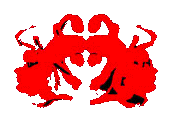







|
• rewards for “team play". • punishment for individuality. • obvious pressure to conform. • Emotional distance of the victim • Closeness & legitimacy of the authority • Institutional authority • The liberating effects of group influence • Attitudes fail to determine behavior when external influences override inner convictions. Torn between the pleas of the victim & the orders of the experimenter, between the desire to avoid doing harm & the desire to be a good subject, a surprising number of people chose to obey. • In Greece, & in Nazi Germany the military selected candidates based on their respect for & submission to authority. Compliance bred acceptance. • Too often, criticism produces contempt, which licenses cruelty, which, when justified, leads to brutality, then killing, then systematic killing. Evolving attitudes both follow & justify actions. • First acts of compliance or resistance bred attitudes that influence behavior, which strengthen those very same attitudes. On the other hand, Initial helping heightens commitment, leading to more helping (good thing). • Culture is a powerful shaper of lives. Immediate situational forces are just as powerful Considered together they reveal the strength of the social context. • When fragmented, evil becomes easier. • The drift toward evil usually comes in small increments, without any conscious intent to do evil. Procrastination involves a similar unintended drift, toward self-harm. • FAE occurs when we make inappropriate dispositional errors. The underestimation of social forces (situations) to cause behavior continues. Keep your guard up, realize that if you pick the wrong situation or let yourself be drawn into one, the situation may dictate your behavior not the kind of person your are. |
|
Social Psychology Robert C. Gates |
|

